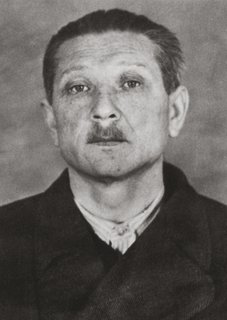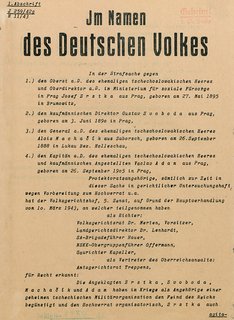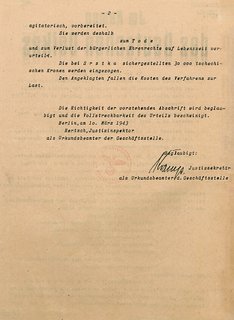After German occupation in March 1939, a number of high-ranking Czech officers formed the underground military organization Obrana Naroda (ON: Defense of the Nation). For a long time, the Czech administration of the “protectorate” also maintained close contact with the government-in-exile under Edvard Benes in London, providing them with information and arranging the escape of volunteers to join the Czech units fighting with the Allies.
For a time, the ON intelligence service managed to infiltrate entire institutions in the protectorate’s administration. In 1940/41, ÜVOD (Center of the Domestic Resistance Movement) began coordinating the various underground resistance organizations’ activities.
As the “Reich Protectorate of Bohemia and Moravia” was subject to German law, the “People’s Court” passed death sentences for hundreds of Czech resistance fighters from all political groups. More than 600 of them were murdered in Plötzensee prison alone.
The career officer Josef Srstka served in the Czechoslovakian army. When the military was dissolved by the German occupation, he was dismissed at the rank of colonel. He worked in the underground organization Obrana Naroda, where for a time he took on the function of chief of staff of the underground army from General Dolecal. In the spring of 1941, he undertook from ÜVOD the task of supporting relatives of resistance fighters, soldiers fighting in the Allied armies, and victims of Nazi terror.As a soldier, he was prepare d to “take up arms against the Reich,” according to the “People’s Court” judgment against him. Srstka was arrested on December 19, 1941. After long preliminary investigations, he was tried before the “People’s Court” on March 10, 1943, along with Gustav Svoboda, Alois Machacik, and Vaclav Adam. All four men were sentenced to death and beheaded in Plötzensee prison on June 1, 1943.



